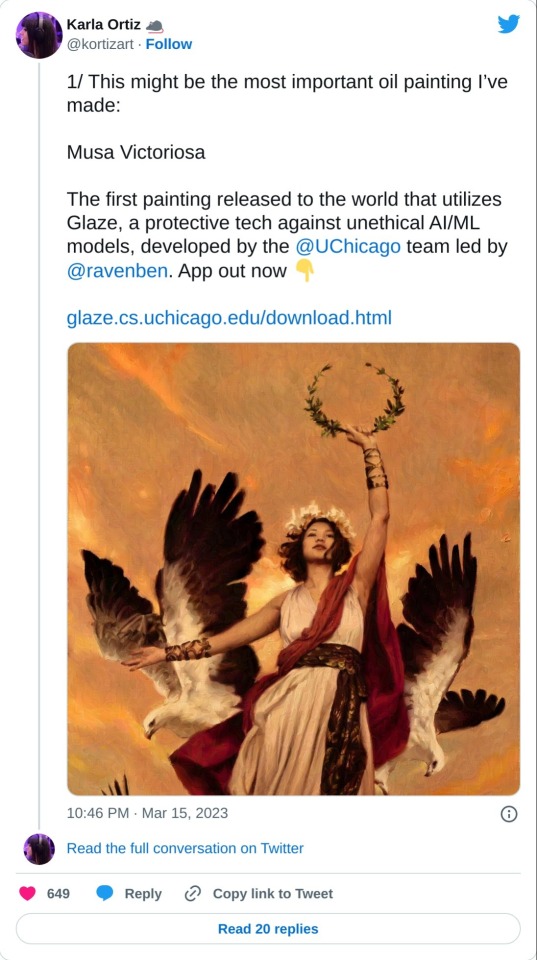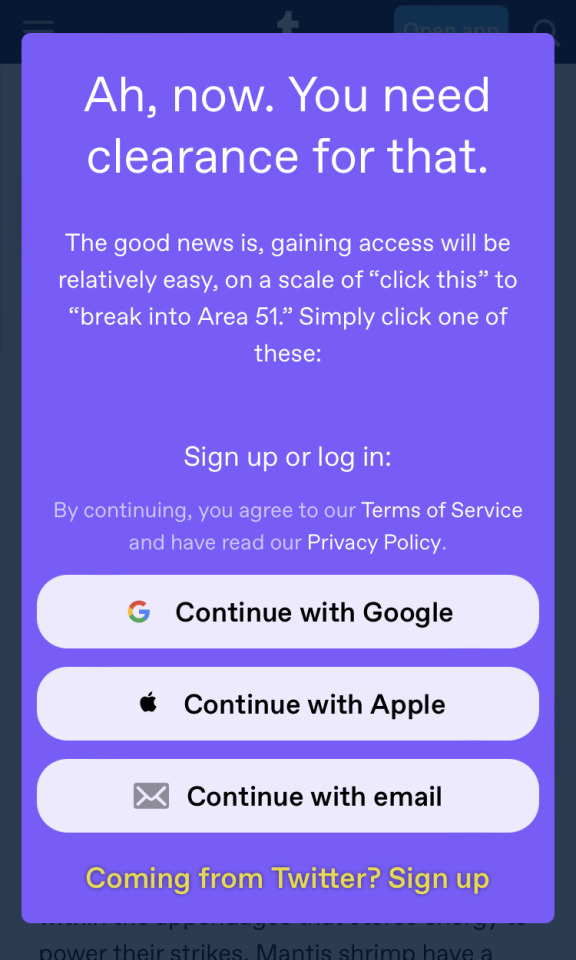To All My Researchers, Students And People In General Who Love Learning: If You Don't Know This Already,
to all my researchers, students and people in general who love learning: if you don't know this already, i'm about to give you a game changer
connectedpapers
the basic rundown is: you use the search bar to enter a topic, scientific paper name or DOI. the website then offers you a list of papers on the topic, and you choose the one you're looking for/most relevant one. from here, it makes a tree diagram of related papers that are clustered based on topic relatability and colour-coded by time they were produced!
for example: here i search "human B12"

i go ahead and choose the first paper, meaning my graph will be based around it and start from the topics of "b12 levels" and "fraility syndrome"

here is the graph output! you can scroll through all the papers included on the left, and clicking on each one shows you it's position on the chart + will pull up details on the paper on the right hand column (title, authors, citations, abstract/summary and links where the paper can be found)
you get a few free graphs a month before you have to sign up, and i think the free version gives you up to 5 a month. there are paid versions but it really depends how often you need to use this kinda thing.
More Posts from A-mess-of-links and Others
i was linked to this absolutely wild thread from 14 years ago on a forum for aquarium enthusiasts from michigan: a guy has a 90 lb rock in his aquarium that was infested with a bobbit worm (the penis thing is a misconception) that poses a threat to the rest of his fish and solicits help on how to kill it. but because he can't feed the worm poison without risking the decomposing body killing the other fish, he's doing looney tunes shit to it

warning for occasional pictures of scary worms that looks like jrpg bosses
Too many artists are held back by outdated and bad color theory rules, or even rules that are fine but have built in limitations that you should know and I want to set everyone free.

In recent years, Google users have developed one very specific complaint about the ubiquitous search engine: They can’t find any answers. A simple search for “best pc for gaming” leads to a page dominated by sponsored links rather than helpful advice on which computer to buy. Meanwhile, the actual results are chock-full of low-quality, search-engine-optimized affiliate content designed to generate money for the publisher rather than provide high-quality answers. As a result, users have resorted to work-arounds and hacks to try and find useful information among the ads and low-quality chum. In short, Google’s flagship service now sucks.
And Google isn’t the only tech giant with a slowly deteriorating core product. Facebook, a website ostensibly for finding and connecting with your friends, constantly floods users’ feeds with sponsored (or “recommended”) content, and seems to bury the things people want to see under what Facebook decides is relevant. And as journalist John Herrman wrote earlier this year, the “junkification of Amazon” has made it nearly impossible for users to find a high-quality product they want — instead diverting people to ad-riddled result pages filled with low-quality products from sellers who know how to game the system.
All of these miserable online experiences are symptoms of an insidious underlying disease: In Silicon Valley, the user’s experience has become subordinate to the company’s stock price. Google, Amazon, Meta, and other tech companies have monetized confusion, constantly testing how much they can interfere with and manipulate users. And instead of trying to meaningfully innovate and improve the useful services they provide, these companies have instead chased short-term fads or attempted to totally overhaul their businesses in a desperate attempt to win the favor of Wall Street investors. As a result, our collective online experience is getting worse — it’s harder to buy the things you want to buy, more convoluted to search for info
Firefox v120!

New copy link without site tracking feature: removes the tracking at the end of urls usually that end with "?=[long ass string of numbers or info on your browser or how you clikced the link]" previously an optional feature of ublock origin to remove it as you go to sites, but now you can also copy links as well

New "Tell websites not to sell or share my data" option in privacy settings. Websites have no obligation to do this, except under GDPR which is most sites. adds a bit to your fingerprintability, however if everyone turns this on it will work better for everyone.
Firefox is rolling-out Cookie Banner Blocker by default in private windows for users in Germany during the coming weeks. Firefox will now auto-refuse cookies and dismiss annoying cookie banners for supported sites.
you can set "cookiebanners.service.mode" to 2 to automatically refuse cookies and have them stop asking you about it. While it's also an optional feature of ublock origin, this might work better
Firefox has enabled URL Tracking Protection by default in private windows for all users in Germany. Firefox will remove non-essential URL query parameters that are often used to track users across the web.
Not sure how to turn this on in settings (this is also an optional ublock feature, these don't hurt to stack) but once again removes the tracking at the end of urls telling you how the link was shared and how you got there
Firefox cares about your privacy and is making the internet a safer place from corporations. Do your part and download it today









FISH is a beautiful & incredibly weird metaphysical exploration of life, the Universe & everything!
Read More & Play The Full Game, Free (Windows)
Glaze is out!
Tired of having your artwork used for AI training but find watermarks dismaying and ineffective?
Well check this out! Software that makes your Art look messed up to training AIs and unusable in a data set but nearly unchanged to human eyes.
I just learned about this. It's in Beta. Please read all the information before using.


I don’t know if I’m late to the party here noticing this, but @staff what the actual hell is this. This is what I get when I click on the link to my own mantis shrimp post, shared on Twitter. I can see the first half, and then I get forced to log-in to keep reading.
I write a free blog on your free platform, and you’re using link sharing on mobile to try to force people to sign up? Not only is this absolutely not okay - this isn’t a paywalled site and my content isn’t subscription only - but it really fucks me over as a science communicator who relies on posts being shared easily to disseminate information.
This is absolutely not okay. I’ve used this site for eight years to do for science outreach and loved it. This choice leaves a really nasty taste in my mouth.
Hey all, you know how internet searches suck now? When the results are awful, full-of-AI, death-of-the-internet levels of bad?
Start appending date constraints to your searches - "before:2023".
My results have gone from 90% AI bullshit to ~60% usable - which frankly at this point is a huge improvement.
-
 corsilentium liked this · 1 week ago
corsilentium liked this · 1 week ago -
 referenking reblogged this · 2 weeks ago
referenking reblogged this · 2 weeks ago -
 lpadbaby liked this · 3 weeks ago
lpadbaby liked this · 3 weeks ago -
 ihadnointentiontoblog liked this · 4 weeks ago
ihadnointentiontoblog liked this · 4 weeks ago -
 asche-winters reblogged this · 4 weeks ago
asche-winters reblogged this · 4 weeks ago -
 riptide-rabbitholes reblogged this · 1 month ago
riptide-rabbitholes reblogged this · 1 month ago -
 friendofcrowsandcats liked this · 1 month ago
friendofcrowsandcats liked this · 1 month ago -
 maruxee liked this · 1 month ago
maruxee liked this · 1 month ago -
 vermilionvexation liked this · 1 month ago
vermilionvexation liked this · 1 month ago -
 dragonvilla liked this · 1 month ago
dragonvilla liked this · 1 month ago -
 tahajud reblogged this · 1 month ago
tahajud reblogged this · 1 month ago -
 unquartdetour liked this · 2 months ago
unquartdetour liked this · 2 months ago -
 null3cho liked this · 2 months ago
null3cho liked this · 2 months ago -
 voidtone reblogged this · 2 months ago
voidtone reblogged this · 2 months ago -
 baclavasuiti liked this · 2 months ago
baclavasuiti liked this · 2 months ago -
 hwaseongstudies reblogged this · 2 months ago
hwaseongstudies reblogged this · 2 months ago -
 pebblesayshi liked this · 2 months ago
pebblesayshi liked this · 2 months ago -
 evefromthenorth liked this · 3 months ago
evefromthenorth liked this · 3 months ago -
 gautierprotectionsquad reblogged this · 3 months ago
gautierprotectionsquad reblogged this · 3 months ago -
 temporaryclevertitle reblogged this · 3 months ago
temporaryclevertitle reblogged this · 3 months ago -
 wildsparked reblogged this · 3 months ago
wildsparked reblogged this · 3 months ago -
 small-wet-rat liked this · 3 months ago
small-wet-rat liked this · 3 months ago -
 feminist-pussycat liked this · 3 months ago
feminist-pussycat liked this · 3 months ago -
 ohmahgodtheywereroomates liked this · 3 months ago
ohmahgodtheywereroomates liked this · 3 months ago -
 lavenderfixation liked this · 3 months ago
lavenderfixation liked this · 3 months ago -
 x-whyareyoureadingthis-x liked this · 3 months ago
x-whyareyoureadingthis-x liked this · 3 months ago -
 aprilpoison reblogged this · 3 months ago
aprilpoison reblogged this · 3 months ago -
 aprilpoison liked this · 3 months ago
aprilpoison liked this · 3 months ago -
 zeroatthebone liked this · 3 months ago
zeroatthebone liked this · 3 months ago -
 lokichixx liked this · 3 months ago
lokichixx liked this · 3 months ago -
 hhdbsn liked this · 3 months ago
hhdbsn liked this · 3 months ago -
 devoutli liked this · 3 months ago
devoutli liked this · 3 months ago -
 heraldwings liked this · 3 months ago
heraldwings liked this · 3 months ago -
 modmaenad reblogged this · 3 months ago
modmaenad reblogged this · 3 months ago -
 senseihuy reblogged this · 3 months ago
senseihuy reblogged this · 3 months ago -
 neoneomoon reblogged this · 3 months ago
neoneomoon reblogged this · 3 months ago -
 neoneomoon liked this · 3 months ago
neoneomoon liked this · 3 months ago -
 burymylovely liked this · 3 months ago
burymylovely liked this · 3 months ago -
 heatherannchristie liked this · 3 months ago
heatherannchristie liked this · 3 months ago -
 savannahmayzing reblogged this · 3 months ago
savannahmayzing reblogged this · 3 months ago -
 justafetusinthewomboflife liked this · 3 months ago
justafetusinthewomboflife liked this · 3 months ago -
 famousblueraincoat1971 liked this · 3 months ago
famousblueraincoat1971 liked this · 3 months ago -
 ratdaisy reblogged this · 3 months ago
ratdaisy reblogged this · 3 months ago

